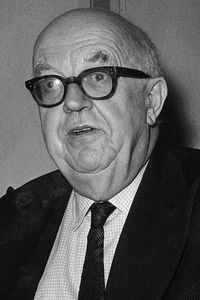C.P. Snow, a renowned English polymath, was a multifaceted individual who made significant contributions to various fields, including literature, physics, chemistry, and politics.
Born in Leicester, England, Snow received his early education at the College of Leicestershire and Rutland, before moving on to Cambridge University, where he earned his Doctor of Philosophy degree at the age of 25 for his work on spectroscopy.
After completing his education, Snow taught at Cambridge's College of Christ, but his academic pursuits were interrupted when he was appointed as a government adviser on weapons and scientific personnel.
Throughout his career, Snow held various influential positions in the British government, primarily serving under Labor administrations. Notably, he served as the technical director of the Ministry of Labor from 1940 to 1944, the commissioner of the civil service from 1945 to 1960, and the parliamentary secretary of the Ministry of Technology from 1964 to 1966.
In 1957, Snow was knighted and elevated to noble dignity, and in 1964, he was created a life peer without the right of inheritance in a baronial status.
In his personal life, Snow was married to writer Pamela Hensford Johnson and had a son, Philip, born in 1952. He also held the elected position of rector at the University of St. Andrews from 1961 to 1964.
Throughout his life, Snow maintained close friendships with prominent figures in the scientific and academic communities, including mathematician G. H. Hardy, physicist P. M. S. Blackett, biophysicist J. D. Bernal, and cultural historian Jacques Barzen.















